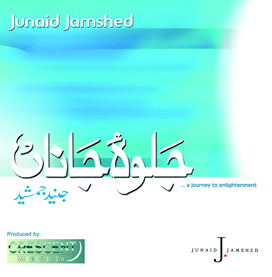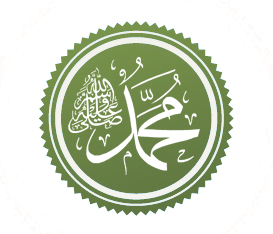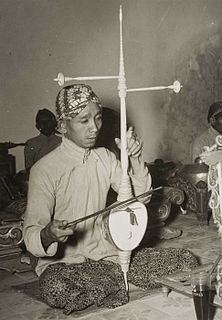 W
WIslamic music may refer to religious music, as performed in Islamic public services or private devotions, or more generally to musical traditions of the Muslim world. The classic heartland of Islam is the Middle East, North Africa, the Horn of Africa, West Africa, Iran, Central Asia, and South Asia. Due to Islam being a multi-ethnic religion, the musical expression of its adherents is vastly diverse. Indigenous traditions of various part have influenced the musical styles popular among Muslims today.
 W
WBadr-ud-Duja is the third religious and spiritual album released by the Pakistani artist Junaid Jamshed, in 2007.
 W
WMehdi Hasan Khan was a Pakistani ghazal singer and playback singer for Lollywood. One of the greatest and most influential figures in the history of ghazal singing, he is referred to as the "Shahenshah-e-Ghazal". Known for his "haunting" baritone voice, Mehdi Hassan is credited with bringing ghazal singing to a worldwide audience. He is unique for his melodic patterns and maintaining integrity of the ragas in an innovative way. Born to a musical family, he influenced generations of singers from diverse genres, from Jagjit Singh to Sonu Nigam. He earned numerous awards and accolades in his career and remained a leading singer of Pakistani film industry along with another contemporary playback singer Ahmed Rushdi, and it's estimated that "he sang and created soundtracks for almost 300 movies."
 W
WJalwa-e-Janan was the first religious and spiritual album released by former Pakistani pop singer, Junaid Jamshed. Its most popular naat is 'Muhammad Ka Roza Qareeb Aaraha Hai, Bulandi Pe Apna Naseeb Aaraha Hai'.
 W
WJarigan or is one of the few indigenous music art performances of Bangladesh, West Bengal, Barak Valley and Brahmaputra Valley. Though varied and divergent in form, most are based on legends relating to Muslim heroes Hasan ibn Ali and Husayn ibn Ali, grandsons of Muhammad and other members of his family at Karbala. The most renowned is jari gan from eastern Mymensingh, which commemorates the death of Hosain at Karbala. The performers, who are male Sunni Muslims, work chiefly as farmers.
 W
WNaʽat is poetry in praise of the Islamic prophet, Muhammad. The practice is popular in South Asia, commonly in Bengali, Pashto, Punjabi or Urdu. People who recite Naʽat are known as Naʽat Khawan or sanaʽa-khuaʽan. Exclusive "Praise to Allah" and Allah alone is called Hamd, not to be confused with 'Na'at'.
 W
WQawwali is a form of Sufi Islamic devotional singing, originating from the Indian subcontinent, and notably popular in the Punjab and Sindh regions of Pakistan; in Hyderabad, Delhi and other parts of India, especially North India; as well as the Dhaka and Chittagong Divisions of Bangladesh.
 W
WAnne K. Rasmussen, born in 1959, is an American educator and ethnomusicologist. Much of her research focuses on Arab music in the US and Islamic ritual and performance. She has been the director of the William & Mary Middle Eastern Music Ensemble since 1994. Rasmussen was named the William M. and Annie B. Bickers Professor of Middle Eastern Studies in 2014.
 W
WThe rebab is the name of several related bowed string instruments that independently spread via Islamic trading routes over much of North Africa, Southeast Asia, the Middle East, and parts of Europe.
 W
WSahibzada Tasleem Ahmed Sabri is a Pakistani television host of Islamic Television Channel ARY Qtv, a subsidiary of the ARY Digital Network which is available in Pakistan, the Middle East, US, UK and Europe.
 W
WMuzaffar Warsi was a Pakistani poet, essayist, lyricist, and a scholar of Urdu. He began writing more than five decades ago. He wrote a rich collection of na`ats, as well as several anthologies of ghazals and nazms, and his autobiography Gaye Dinon Ka Suraagh. He also wrote quatrains for Pakistan's daily newspaper Nawa-i-Waqt.